As AAPI Heritage Month draws to a close, we want to thank the AAPI staff at GRID Alternatives who have shared some of their stories with us this past month. We would also like to thank the Asian Pacific Environmental Network for joining us in a conversation on fighting for an environmentally just future, which you can watch here. We recognize that AAPI communities continue to face violent attacks and micro-aggressions in places of work, and want to uplift these resources: Stop AAPI Hate, Conflict De-Escalation training, Bystander Intervention training, and Responding to and Preventing Harassment training.
In case you missed our staffs’ posts on GRID’s Instagram, we are sharing them here.
Jessica Sams
SolarCorps Outreach Fellow
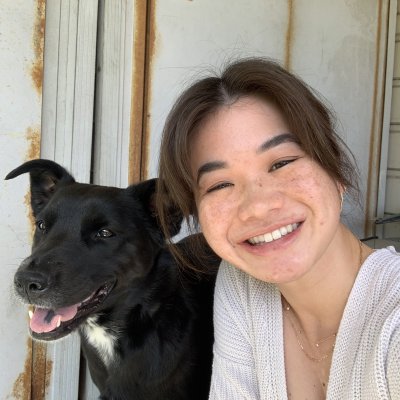
What is your favorite part of your job?
Seeing folks become agents of change as they journey towards a clean energy future!
How has your heritage shaped you to become who you are today?
While my mixed heritage has certainly contributed to confusion around my identity, I am constantly learning about my heritage and appreciating the opportunities to reclaim parts of my ancestry.
What’s a book, film, or podcast you would recommend?
Feeling Asian podcast. Two Asian comedians in New York talk about their feelings as they experience the chaotic affairs that life throws at people.
What does AAPI Heritage Month mean to you?
To me, AAPI Heritage Month means a chance to challenge myself through discovery and celebration of my unique culture, as well as the culture of others. It also means joining loved ones to share and chow down the food of my ancestors!
How do you identify within the AAPI community?
I identify as a tenacious, feeling, and multiracial Asian American woman. I am a proud 3rd gen Japanese, 3rd gen Chinese, and Caucasian human in the AAPI community!
Tia Sulunga
Construction Project Coordinator
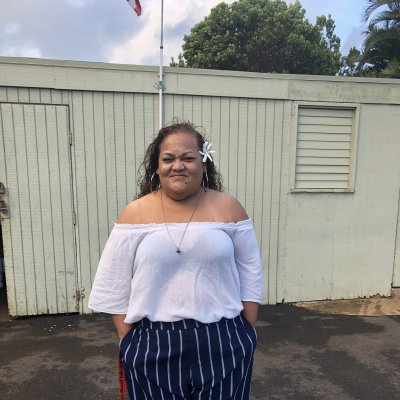
How do you identify within the AAPI community?
I'm a Pacific Islander mix. My father is Tongan, Tokelauan, English, and Scottish mix. My mother is Tongan and Fijian.
Do you have any family traditions that are important to you?
My family has a lot of traditions based in our Tongan culture. The one I'm most proud of is our tradition of respect. Coming from a communal perspective there's a respect between parents and child, siblings, elderly and young and the various relationships we have with people. It's called 'Tapu.'
Why is it important to have AAPI voices in the environmental justice space?
Environmental justice is supposed to be the fair treatment and involvement of all people regardless of color, race, and income. It’s important for AAPI to have a strong voice because the disproportionate population of AAPI are part of these disadvantaged communities who lack the resources and knowledge due to inadequate access to information and resources.
Michael Yang
Project Management Fellow on the Commercial and Multifamily team
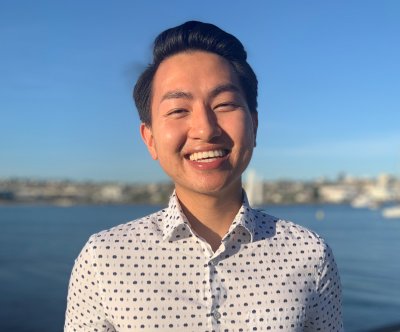
How do you identify within the AAPI community?
I am Hmong-American. We’re an ethnic minority from Laos and actually, fun fact, during the Vietnam war, we were recruited by the CIA to fight with the Americans. After the war, we were persecuted for aiding the American effort, and so there was a big wave of emigration to places like the U.S and Australia. My parents immigrated to California in 1990.
What is your favorite part of your job?
I really enjoy working and participating with the Equity, Inclusion, and Diversity initiatives that GRID has. Leading the AAPI affinity group has been one of the highlights of my fellowship. A lot of the work I do involves long term projects, and though I may not see the tangible benefits during the course of my fellowship, I really enjoy knowing that the work that I do will someday help someone get solar.
What does AAPI Heritage Month mean to you?
It’s important that we celebrate our cultures. It’s important that we celebrate self-love. South eastern cultures are often overlooked in the AAPI conversations and I find it important to raise my voice during this month. This is also a month to not only highlight AAPI folx, but to highlight minority folx in the AAPI community – women, nonbinary folx, queer folx.
Sammi Chan
Workforce Development Program Coordinator
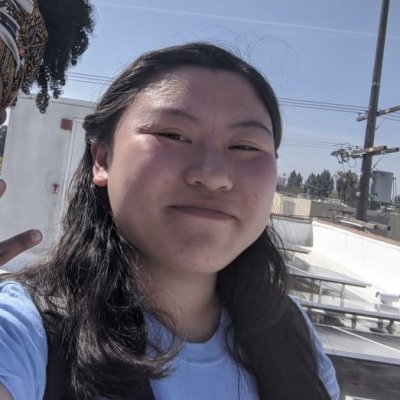
How do you identify within the AAPI community?
I am a Chinese American.
Do you have any family traditions that are important to you?
My parents’ generation in my family have worked mostly in the restaurant industry, so we have a lot of food-related family traditions. We really enjoy feeding each other.
What brings you joy about your heritage and culture?
Food once again! It was difficult when I went to college and had to travel far away to get roast duck, dim sum, and home style Cantonese cooking.
The past few years, there has been an increase in hate-filled violence towards the AAPI community. What does showing up to support this community look like for you?
Showing up looks like acknowledging the cultural and political structures that excuse violence and hate towards the AAPI community exist and working towards changing them. This is a community responsibility and not an individual one.
Why is it important to have AAPI voices in the environmental justice space?
Having more AAPI folx attracts more AAPI folx! In order to have a truly inclusive environmental justice movement, we need to include everyone. The AAPI community is just as impacted by environmental injustice and climate change as everyone else is.
Jimmy Cheung
SolarCorps Construction Fellow
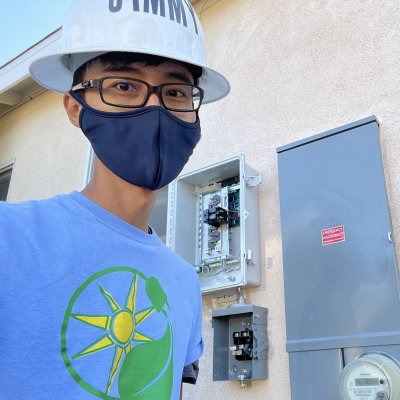
How do you identify within the AAPI community?
I grew up in Hong Kong and am Chinese American
What brings you joy about your heritage and culture?
The philosophy and principles
The past few years, there has been an increase in hate-filled violence towards the AAPI community. What does showing up to support this community look like for you?
I can’t speak for others how they feel but from my observations, most of us would just keep opinions to ourselves and improve from hardship. On the contrary, sometimes it is good to speak up.
Why is it important to have AAPI voices in the environmental justice space?
I believe one voice would not speak for all. Voices from different backgrounds and cultures could definitely bring more perspectives and ideas to the table.
Kelsey Rich
Senior Program Manager
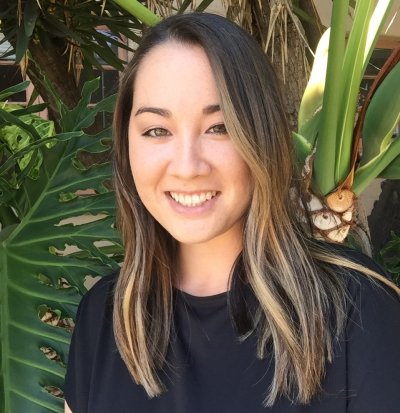
How do you identify within the AAPI community?
I identify as Korean-American and biracial/mixed-race. My mom is Korean and my dad is white.
Do you have any family traditions that are important to you?
It is a family tradition to visit the grave of my grandfather every year on the anniversary of his death to bow and pay respects. My dad passed away this year so I am looking forward to continuing this tradition and honoring him for years to come
What brings you joy about your heritage and culture?
I cherish having a large extended family with a surprisingly low amount of drama. Whenever we get together it’s a joyous experience with plenty of laughter, good food, and karaoke!
The past few years, there has been an increase in hate-filled violence towards the AAPI community. What does showing up to support this community look like for you?
An important first step is acknowledging that anti-Asian violence is a serious issue and talking about it openly and honestly, both within the AAPI community and outside of it. Beyond that, equipping yourself with bystander intervention skills and tactics is a way that everyone can contribute and support.
Why is it important to have AAPI voices in the environmental justice space?
It is important to have voices from all communities represented in the environmental justice space and AAPI perspectives and experiences seem to be specifically left out of the conversation. We need to continue to support AAPI voices to help pull them into the mainstream environmental movement.
Kam Jaspal
Interim Executive Director of GRID Colorado
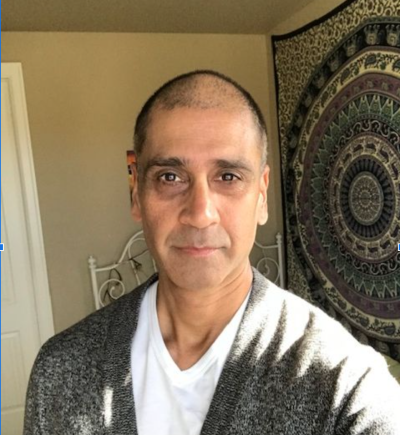
How do you identify within the AAPI community?
I identify as Asian American
Do you have any family traditions that are important to you?
Taking my entire family to the temple. These visits feel like immersions in my culture. The people, sights, sounds and food.
What brings you joy about your heritage and culture?
That I come from a culture steeped in rich history and traditions. That my parents and forefathers experienced those rich traditions. Those traditions often include a unique fibrance of colors, foods and art.
The past few years, there has been an increase in hate-filled violence towards the AAPI community. What does showing up to support this community look like for you?
I joined a rally in Denver last year to help bring awareness specifically to hate crimes inflicted on members of the asian community. Mostly I support by raising awareness in my circles. Its shocking how little awareness and validity there is around this issue.
